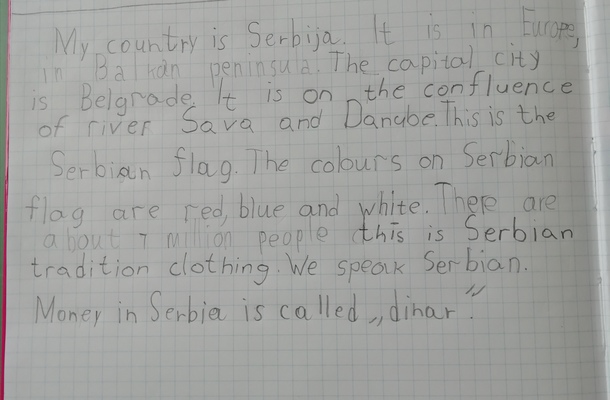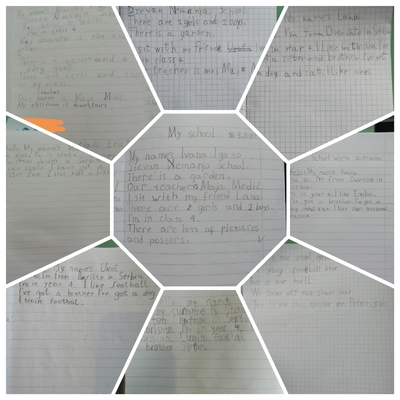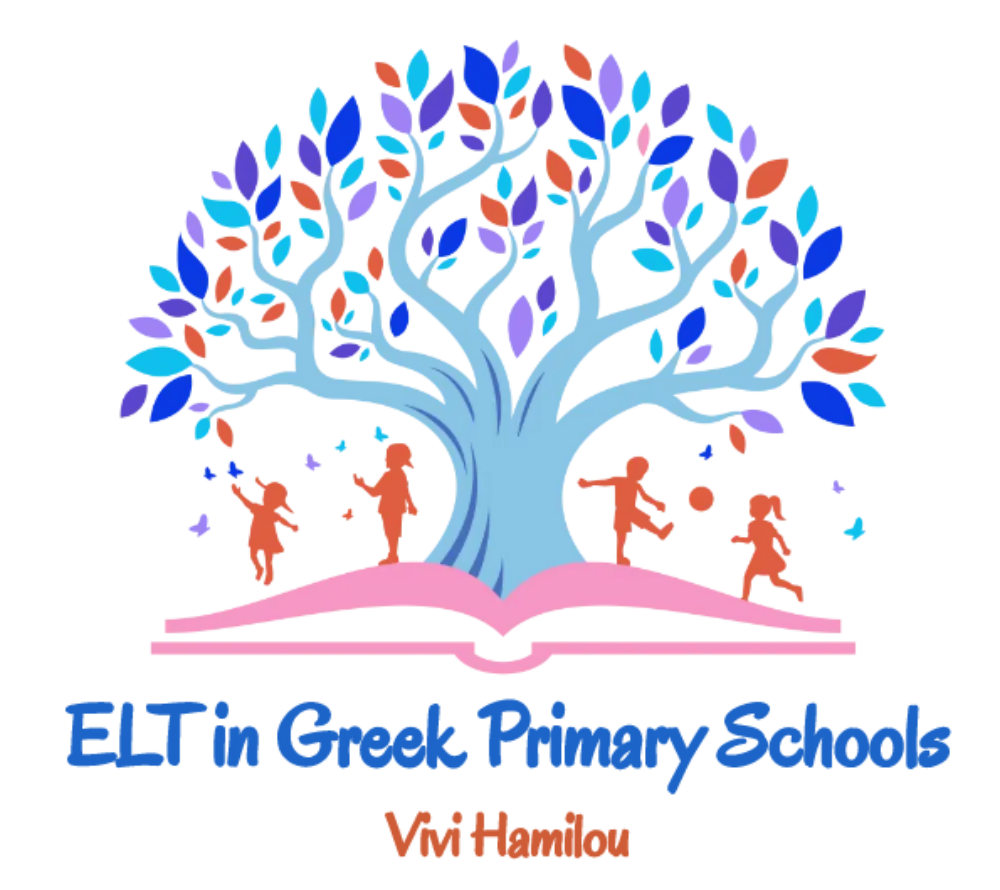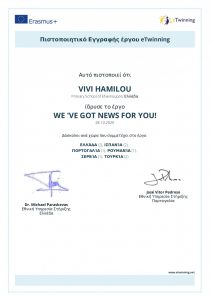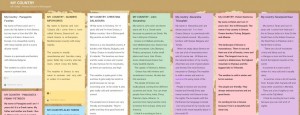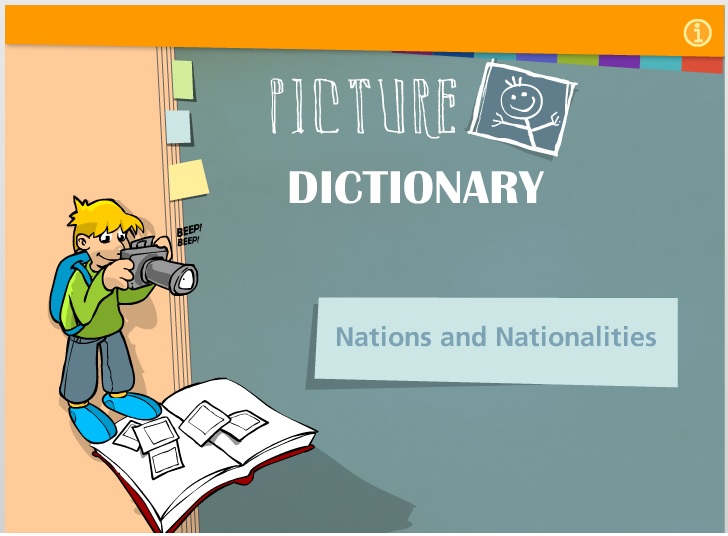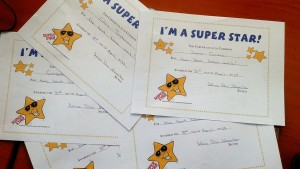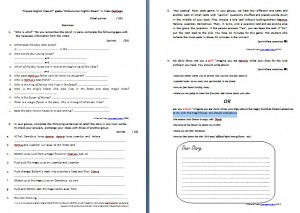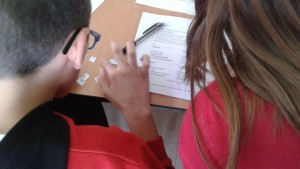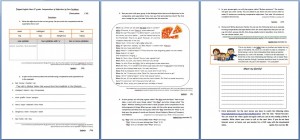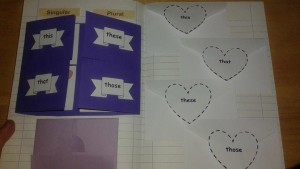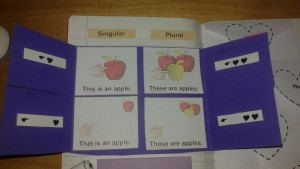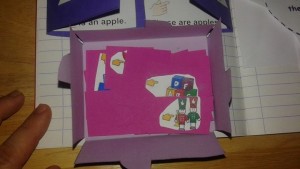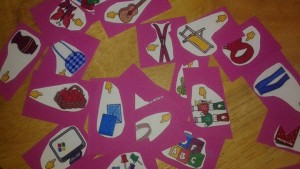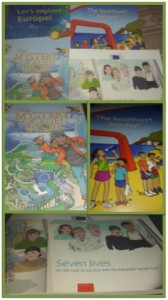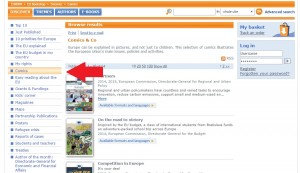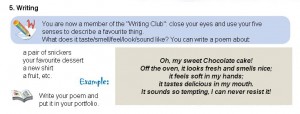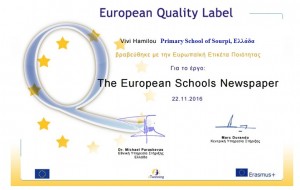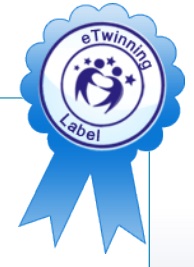
If you are a teacher, you have probably heard or read about the flipped classroom as a new instructional strategy, during which you may record the lesson and deliver it online for your learners to watch at home, you may allow learners to collaborate in online discussions and try to understand the content of the video and, while in class, you, the teacher, can exploit class time to engage learners in activities related to the content they have watched at home! If you are an EFL teacher in Magnesia, Greece, you have had the opportunity to learn about this method via in-service training by our school advisor and you have watched how it has been exploited in a secondary school in Volos!
On a personal note, flipping the classroom sounds so exciting! I’ve always meant to try it, but lack of time strikes as a flashing neon sign on a threatening dark cloud surrounded by thunders and lightnings above my head! I am sure my learners would welcome the idea of watching the lesson on a video at home and would be thrilled to have the opportunity to discuss it online with their peers, without any written assignment as homework, but how can I organize and deliver a lesson like that without devoting an unimaginable amount of valuable hours planning, designing, editing and recording?
Well, in this once-in-a-lifetime opportunity, we can shake things up a little bit in our class without spending many hours in front of a computer screen and devoiding (again!) our loved ones of our company, love and attention! Ms Andriani Rigoutsou has at our disposal 4 pre-designed, ready-to-use lesson plans with all the necessary video-recorded and printable materials and invites us to use them in our 6th grade classes … once, twice or for four teaching sessions …for free … with her help and support … allowing us to adapt them … or not … and helping her with her dissertation! How perfectly convenient is that? I know I am saying ‘yes’ to the challenge and inviting more public Primary School EFL educators to shake things a bit in their class as well and in our teaching methods and approaches, while helping a colleague complete the last and most demanding part of her academic pursuit at a time she mostly needs us (by the way, wishing you a safe delivery, Andriani, and nothing but precious and joyous times with your new baby!).
Here is her message with all the necessary information and related materials! If you are also replying positively to her invitation, please, send her an email and join us in this unknown, innovative, challenging and developing field:
Αγαπητές-οι συναδέλφισσες/-οι,
Oνομάζομαι Ανδριανή-Χριστίνα Ρηγούτσου, είμαι καθηγήτρια Αγγλικών στην Πρωτοβάθμια εκπαίδευση και φέτος ασχολούμαι με τη συγγραφή της Διπλωματικής μου εργασίας στο πρόγραμμα Μεταπτυχιακού του Τμήματος Ειδίκευσης Καθηγητών Αγγλικής στο Ελληνικό Ανοιχτό Πανεπιστήμιο. Tο θέμα της εργασίας μου είναι: “Implementing Flipped Classroom Approach in the 6th grade of Greek State Primary Schools: Effect on Teachers’ Professional Development and Students’ Active Learning”( «H εφαρμογή του μοντέλου της «Αντεστραμμένης Τάξης» σε μαθητές Στ’ Δημοτικού Ελληνικών Δημόσιων Σχολείων: επίδραση στην Επαγγελματική Εξέλιξη των Εκπαιδευτικών και την Ενεργό Μάθηση των Μαθητών».)
Παίρνω την πρωτοβουλία να ζητήσω την πολύτιμη βοήθειά σας και, συγκεκριμένα, των συναδέλφων που διδάσκουν στην 6η τάξη του Δημοτικού σχολείου, εξαιτίας του γεγονότος ότι φέτος απέχω από τα διδακτικά μου καθήκοντα λόγω εγκυμοσύνης/τοκετού και αδυνατώ να υλοποιήσω τα μαθήματα Flipped Classroom (Αντεστραμμένης Τάξης) που έχω σχεδιάσει για τις ανάγκες της διπλωματικής.
Συγκεκριμένα, οι ενδιαφερόμενοι εκπαιδευτικοί μπορούν να χρησιμοποιήσουν το σχεδιασμένο από μένα υποστηρικτικό υλικό που θα βρουν αναρτημένο εδώ για να διδάξουν από 1 έως και 4 μαθήματα ακολουθώντας τη μέθοδο της Αντεστραμμένης Τάξης (Flipped Classroom).
Σημειώνεται ότι μπορείτε να διδάξετε από 1 έως και 4 από τα προτεινόμενα μαθήματα, καθώς και ότι μπορείτε να τροποποιήσετε το υλικό ή να δημιουργήσετε ένα δικό σας μάθημα αντεστραμμένης τάξης. Για καθένα από τα μαθήματα, θα χρειαστείτε από τα επισυναπτόμενα έγγραφα:
1) Lesson Plan
2) Video Tasksheet
3) In-Class Taskheet
Συνοδευτικά, θα βρείτε συνημμένα:
-μία παρουσίαση σε αρχείο Powerpoint για τη δική σας ενημέρωση καθώς και
-ένα ενημερωτικό έντυπο που απευθύνεται στους γονείς των μαθητών σας.
Συνολικός αριθμός συνημμένων αρχείων:16
Επίσης, επειδή συμμερίζομαι το γεγονός ότι υπάρχει φόρτος εργασίας ήδη στα σχολεία και πολλοί παράγοντες που επηρεάζουν την πορεία των μαθημάτων, θα είμαι στη διάθεσή σας για περαιτέρω πληροφορίες και υποστήριξη.
Σας ευχαριστώ και πάλι για τον χρόνο σας. Όσον αφορά στην προθεσμία για τη διδασκαλία των μαθημάτων, καλό θα ήταν να έχει ολοκληρωθεί η διαδικασία έως τα τέλη Απριλίου.
Κατόπιν, οι συμμετέχοντες εκπαιδευτικοί θα συμπληρώσετε ένα ερωτηματολόγιο σχετικά με την εμπειρία σας από τη διδασκαλία αυτή δίνοντας έμφαση σε θέματα Επαγγελματικής Εξέλιξης και προώθησης της Ενεργής Μάθησης στους μαθητές.
Θα χαρώ ιδιαίτερα να έχω την ανταπόκρισή σας και σας ευχαριστώ εκ των προτέρων. Αρχικά, μπορείτε να επικοινωνήσετε μαζί μου στο email μου: arigoutsou@gmail.com
Με εκτίμηση,
Ανδριανή Ρηγούτσου

